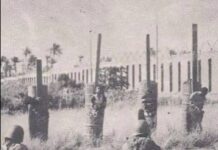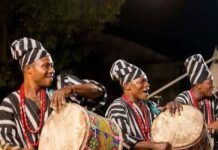Guardians of Heritage: Glance at Bolawa tribe of Fika (Video)
Story by Ahmad Gimba Ba’aba & Sakinat Musa
In the northeastern region of Nigeria lies Yobe State, home to the Bolawa (Bola breed horse herders) people, also known as Bolewa (what for? or for what), Bolanchi (Hausa corrupted), Ampikka (from Fika), or Bopikka (speaks Fika). These stewards of the Bole language are a vital part of the Fika Emirate, preserving a rich and intricate tapestry of cultural and linguistic traditions.
The Bole Language: A Pillar of Identity
Known locally as bòo pìkkà, the Bole language is a West Chadic language spoken by the Bolewa people. This language boasts diverse dialects, including Bara and Fika, primarily spoken within the Fika Emirate. The linguistic variety within Bole-speaking communities reflects the cultural richness and adaptability of the Bolawa people.
A Legacy of Migration from Yemen
The roots of the Bolawa people are deeply entwined with historical migration. According to their traditions, their ancestors embarked on a journey from Yemen, under the leadership of ibn Ya’fur, traveling alongside the founders of the Kanem and Songhai kingdoms. This migration narrative situates the Bolawa within a broader context of West African ethnic and cultural history.
Rituals and Reverence: The Heart of Bolawa Spirituality
The cultural identity of the Bolawa is intricately connected to their social practices and spiritual beliefs. Historically, their social fabric was woven around ancestor worship, with rituals and sacrifices at its core. A notable aspect of their spiritual life is the “Konon” or “Konon-Ako” rain-making cult, believed to harness ancestral spirits for protection and prosperity.
However, in a separate version of the Bolewa history, Islam has been part of them since they left Yemen. In the course of their journey, they had of course intermingled with various tribes and cultures thus, some corruption and inter lineages of their pure Islamic cultures occurred.
Celebrating Ancestry: Festivals and Traditions
In some Bolewa settlements mostly outside Fika, festivals like “Gamdo” or “Ngwando” are central to the Bolawa cultural calendar. These events pay tribute to ancestors and former kings, or “Auni,” who were buried in special places to protect current rulers. Another unique cultural celebration is “Dengti” or “Dengtide,” where men and women exchange traditional clothing, symbolising unity and respect for ancestral customs. This festival is often held near a sacred Baobab tree, a site of deep cultural significance.
Voices of the Ancestors: The Enduring Bole Language
Despite these changes, the Bole language remains a cornerstone of Bolewa identity. It serves as a vital conduit for cultural transmission, preserving historical narratives, oral traditions, and social values. Dialects like Bara (Bole dialect) and Fika (Bole dialect) enrich the linguistic landscape of Bole-speaking regions, ensuring that the Bolewa’s linguistic heritage thrives.
READ ALSO: Kanempress trains North-East youths on reporting historical landmarks of Lake Chad Basin
The Bolewa of Yobe State embody a resilient cultural legacy, deeply rooted in historical migration, linguistic diversity, and adaptive spiritual practices. As guardians of the Bole language, the Bolewa people maintain a vibrant cultural identity that bridges their ancestral past with the present. Their enduring story highlights the power of language and culture in shaping the social fabric of communities across Nigeria.
Intermingling over time
The Bole or Bola people have intermingled with many tribes in the course of their journey. They parted ways with the Kanuri in the Sudan region, met the Marghi and later Babur (Papir) of Biu area. They later met Tangale and the Jukuns. The historical relationship is quite vast, and playing attitude was established with some tribes, up to Hadejia.
In the course of the European colonisation of Africa, a very good historical documentation was stored, and the Bole also grasped the new western knowledge that came at that period in time.
See videos below:
Follow the Neptune Prime channel on WhatsApp:
Do you have breaking news, interview request, opinion, suggestion, or want your event covered? Email us at neptuneprime2233@gmail.com





